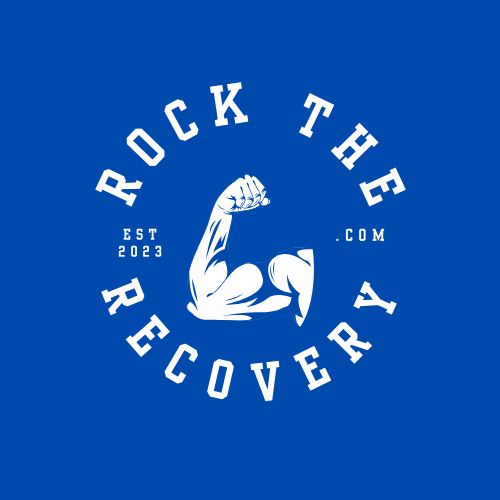As we all know artificial intelligence is the technological innovation to come. Like many other advances in the last few centuries there will be a dash to implement it quicker than it can be done ethically and appropriately. Ready or not however, it is on the way. Be it one year from now, five, maybe ten years, AI is coming for healthcare, and the sky is the limit as to what this might look like for our facilities. The implications are endless, but today’s topic will provide first a look into what your job may look like, and second how it can truly change EVERYTHING.

Example of Life in Healthcare with Artificial Intelligence
Let’s dive straight into an example. You are an Occupational Therapist working with a patient. Your facility just implemented the new AI system. You notice small cameras mounted on the walls, and management has made some pretty big promises. You are treating your patient in the clinic and your Physical Therapist partner is also there treating. He set up his patient with a prolonged hamstring stretch. You roll your eyes as you note he walked off to flirt with the nurse in the hallway (again). After a moment you note that the system alerts the Physical Therapist that their patient has past the non-verbal pain scale threshold. The PT runs in and sees that his patient is in fact in a great deal of pain and not happy. So how did the AI system know to alert the PT?
The AI system is tracking everything that is happening in the clinic. The intent is to gather information for one, to document your session for you. It can understand all of your treatments, and when and how you assisted the patient. What type of education you provided and even how well the patient understood what you said. You no longer have to touch a keyboard than to maybe say approve the perfect notes written by the new system. It also does much more than this. The AI system was watching the patient even though the (not so great) PT was not. It began to note facial grimacing and moaning. AI saw the increased respiration rate and through the patient’s smart watch noted increased heart rate and who knows maybe BP as well. It is the future after all.
Luckily don’t worry this story also has a happy ending. The AI system also notes that this is the 3rd time this week that the chronically bad PT has had a semi-negligent moment. This information (with video footage) was sent to his superior. Don’t worry your boss is still a person (at this stage of the game at least). Happily, the poor excuse of a PT was fired the next day.
Taking it Further
But wait, there’s more! As a Therapist you are often charged with documenting amount of assist a patient needs to say stand. AI now can read an EMG (electromyograph) imbedded in your smart watch. It is used to track how much wrist/hand muscle activation was needed to stand the patient. Muscle strength testing is done the same way. Range of motion testing is done by the system without a goniometer.
While ambulating your patient, the program is doing a thorough gait analysis. You can access its results right after they sit down to provide better, more focused care. Of course, it’s taking gait velocity results in real time. AI is smart. Smart enough to tell us that a patient is plateauing, and we need to consider discharge. Or possibly that they are plateauing, and we need to pivot to a different proven treatment method based on the information if gathered.
Not Just Watching the Patient
Like in our example above, the AI system is watching you (the practitioner) just as much as the patient. Treatment times are calculated by the system now. Your treatments and your customer service are being analyzed. And to go one step further, your company has decided to partake in a “Best Rehab in America” contest through so and so magazine. The score is based on AI’s analysis of YOU and your treatments. It analyzes the attentiveness and service you provide, your treatment decisions and outcomes, and provides you a score out of 100. It could land you a big raise at your annual review (or a scolding)! If this is starting to sound a little too “big brother” for you? Just keep telling yourself, “I will never have to document again.”

The AI system also is gathering meta information from across the world. It is analyzing literally every treatment provided. Imagine how quickly an AI system could have better implemented a Covid treatment regimen, than our current system. Over the course of a few months the system would gather more data than you could in a hundred careers. Sadly, it could likely tell you about the prognosis for your patient down to a decimal point percentage. Taking into account everything that has happened to this patient with their past medical history, age, strength, everything. Then comparing it to millions of similar patients.
Eliminating Clinician Error
Since Therapists (minus our fired PT friend) never make mistakes let’s realize that we are not the only ones being watched. The cameras are now placed everywhere in the facility. Since the only one seeing the film is a computer it’s not really a violation of your privacy after all. The AI system is now catching nursing attempting to give incorrect medications. Meal aids almost providing water to someone on drinking restrictions. Surgeons about to cut into the wrong knee. Shall I go on? AI is catching people getting up when it’s not in their care plan to do so and informs the staff of a potential fall risk. All of a sudden you have staff who are accountable for their actions as well. You eliminate elder abuse and negligence. Hours and hours of wasted documentation time is freed for improved patient quality of care.
Wrap up
This is about the point in the movie where Doctor Emmit Brown comes out and says: “Roads? Where we are going, we don’t need roads!”. The whole thing sounds a bit utopian fantasy I know. For some it might feel more like a Terminator movie, but no matter if the above happens or not, understand that AI will be greatly affecting your life and job on some level in potentially the very near future. I say we have to dream big and use technology to improve ourselves as practitioners. This way we can improve our patient outcomes and fix a very broken healthcare system.
Follow us on

